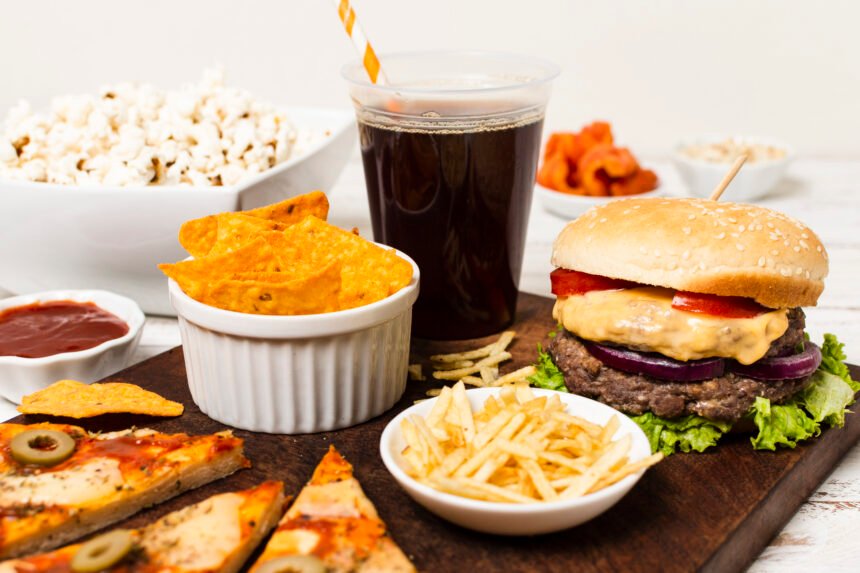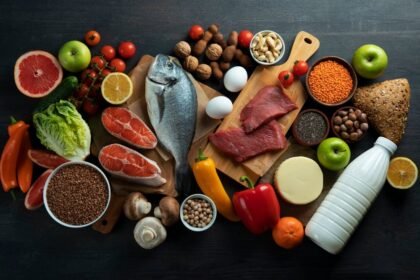In recent years, ultra-processed foods (UPFs) have silently taken over supermarket shelves, dining tables, and daily diets worldwide. What was once an occasional indulgence has become a dietary norm—especially in rapidly developing countries like India. Health experts, including those cited in The Lancet, now warn that this shift is fuelling chronic diseases and posing one of the biggest global health threats of the 21st century.
In this article, we explore what ultra-processed foods actually are, why their consumption has risen dramatically, and how they affect long-term health.
What Are Ultra-Processed Foods?
Ultra-processed foods fall under the NOVA food classification, where foods are grouped based on how much they are processed. UPFs belong to the fourth and highest category—foods that are industrially manufactured, contain long lists of additives, and bear little resemblance to natural food.
Common Characteristics of Ultra-Processed Foods
- Made using industrial techniques (extrusion, molding, hydrogenation, deep processing)
- Contain cosmetic additives (flavors, colors, emulsifiers, stabilizers, thickeners)
- High in sugar, unhealthy fats, salt, and calories
- Low in fiber, protein, and essential nutrients
- Designed to be hyper-palatable, making them easy to overeat
Examples of UPFs
- Packaged snacks (chips, namkeen, cheese balls)
- Instant noodles and soups
- Frozen ready-to-eat meals
- Soft drinks and packaged fruit juices
- Chocolates, candies, and bakery items
- Processed meats (sausages, nuggets, salami)
- Most breakfast cereals and energy bars
- Flavored yogurt and packaged desserts
A Global Health Alert: Experts Sound the Alarm
Top public health researchers, including those behind the recent Lancet report, are increasingly raising concerns over UPFs. According to them, ultra-processed foods are not just unhealthy—they are actively reshaping global disease patterns.
Key Concerns Raised by Experts
- Growing consumption is linked to obesity, type 2 diabetes, heart disease, and certain cancers.
- UPFs promote chronic inflammation and disrupt gut health.
- Additives like emulsifiers and artificial sweeteners may harm metabolic function.
- They encourage overeating due to addictive taste profiles.
- UPF-heavy diets displace whole foods, leading to nutrient deficiencies.
The Lancet report emphasizes that UPFs have “no real nutritional purpose” and contribute significantly to the global rise in chronic lifestyle diseases.
India’s Alarming UPF Surge: A 4,000% Increase
A recent study revealed a staggering 4,000% increase in the sale of ultra-processed foods in India between 2006 and 2019.
- This dramatic rise can be attributed to:
- Urbanization and busy lifestyles
- Aggressive marketing by multinational food companies
- Availability of cheap packaged snacks and instant meals
- Changing dietary habits among children and young adults
- Growth of e-commerce and food delivery platforms
Why This Trend Is Dangerous for India
India is already facing a surge in:
- Childhood obesity
- Early-onset diabetes
- Heart disease among younger populations
The rapid shift from traditional homemade meals to packaged convenience foods only accelerates these health risks.
How Ultra-Processed Foods Harm Your Health
1. Cause Weight Gain and Obesity
High sugar, high fat, and low fiber make UPFs calorie-dense but nutrient-poor. This leads to rapid weight gain.
2. Increase Risk of Diabetes
UPFs spike blood sugar and strain the pancreas, increasing the risk of insulin resistance.
3. Damage Heart Health
Excess sodium and trans fats contribute to high blood pressure and cardiovascular diseases.
4. Harm Gut Health
Additives and low fiber content disturb gut bacteria, leading to inflammation and digestive issues.
5. Increase Cancer Risks
Studies link frequent UPF consumption to higher risks of breast, colon, and pancreatic cancers.
6. Promote Mental Health Issues
Emerging research shows correlations between UPF-heavy diets and:
- Anxiety
- Depression
- Sleep disturbances
How to Reduce Ultra-Processed Foods in Your Diet
You don’t have to eliminate them completely—but cutting down significantly improves health.
Practical Steps to Cut UPFs
- Choose whole fruits instead of packaged juices.
- Replace chips with roasted nuts or homemade snacks.
- Prepare simple fresh meals instead of instant noodles or frozen meals.
- Read labels—avoid products with long ingredient lists.
- Hydrate with water, coconut water, or fresh lemonade instead of soft drinks.
- Choose whole grains like brown rice, millets, and oats.
- Opt for plain yogurt instead of flavored varieties.
Final Thoughts: Shift Towards Real, Natural Food
Ultra-processed foods may be convenient and tasty, but their long-term health impact is undeniable. The rising consumption trend—especially in India—signals a major public health crisis in the making. Awareness is the first step. By consciously reducing UPFs and choosing real, minimally processed foods, individuals can safeguard their health and prevent chronic lifestyle diseases.
A shift back to traditional, homemade, nutrient-rich diets is not just beneficial—it is essential.








